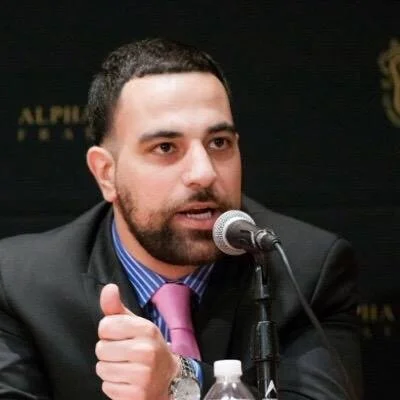Get to know Rep. Rashida Tlaib
Rashida made history in 2008 by becoming the first Muslim woman to ever serve in the Michigan Legislature. Last year she was re-elected for a second term as the congresswoman for Michigan’s 13th Congressional District, which includes the city of Detroit and many surrounding communities.
Representative Tlaib answered PiA’s questions about her background, identity and some of her goals .
Palestine in America (PiA): What balad(s) is your family from?
Rashida Tlaib (RT): Father from Beit Hanina & Mother from Beit Ur Foka
PiA: Was there a moment(s) that drove you to begin your career?
RT: I continued to see that my community was being silenced, neglected, oppressed, and ignored. That’s when I knew that I could not stay on the sidelines. That’s why I do this work. My work is to be a part of the collective liberation of all people.
PiA: What is your earliest memory of participating in political work?
RT: My father was part of the UAW and I remember how voting he would push us to register to vote as soon as we were 18. He always had signs for candidates of the Democratic Party and loved being part of something that made him feel more seen. His love and desire for participating in democracy is part of the foundation that I work from.
PiA: How does Palestine play a role in your work?
RT: It is part of who I am and why I am so passionate about fighting against poverty and corporate greed. Denying someone access to water in Detroit all the way to Gaza is a form of violence. I see the same type of racism, inequality and oppression that my Black and brown neighbors and constituents experience, that many of my Palestinian family members do.
PiA: What’s a Palestinian adverb, quote, person, poem, song that you often reflect on in this work?
RT: "Mountain, Stone" By Lena Khalaf Tuffaha
PiA: What do you hope to achieve in your line of work?
RT: Free people from oppression and poverty. Government should be about people and every person should feel loved and seen by those in their government. That’s what I’m hoping to achieve through my work.
PiA: Many times, Palestinians endure marginalization on all sides of the aisle -- what obstacles do you face/have you faced, and how have you overcome it?
RT: Congress wasn't created for people of color. My mere presence has shook some of those structures that were built to silence people like me. If anything, it reminds me of why, more than ever, more of us need to run for office to bring our experiences forward.
PiA: What’s your advice to folks looking to deepen their political journeys?
RT: Be your authentic self and stay rooted in your community. If you do that, you will always be on the side of the people.
PiA: How do you see the Palestinian diaspora intersect with issue based work amongst other communities?
RT: The same oppressive policies exist in all communities but they are termed differently so we don't fully understand it impacts all of us. From Detroit to Gaza, people are being denied access to water. It's inhumane, oppressive and a form of violence. We must see how our lives are being dehumanized through the same practices by our oppressors.
PiA: How would you define solidarity?
RT: Showing up for each other. Working toward a collective liberation for all people. Committing that all oppression must be destroyed.
PiA: What do you want people to know about you/your experience as a Palestinian in this work?
RT: I am so proud of being a Falastinia and it has made me the compassionate and strong fighter for my district.
PiA: What does a free world mean to you?
RT: For every single person to live with human dignity and the ability to thrive.
PiA: Was there a moment that made you consider leaving political work? What was it and what kept you working in politics?
RT: It happens often. The current structure does not want people like me, people who are fighting for change, people who center vulnerable communities to exist and be in Congress. However, the community I represent keeps me going. My residents pull my chin up, wipe my tears and whisper prayers that remind me that this is the community that raised me to stand up against injustice.




